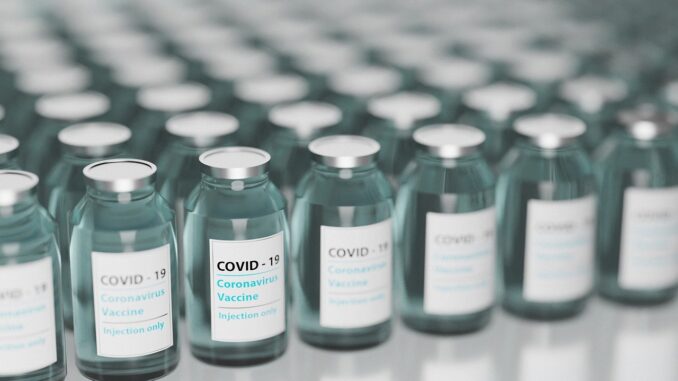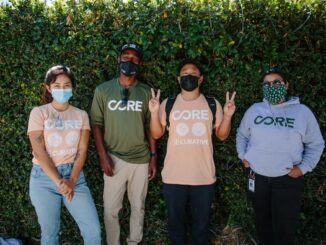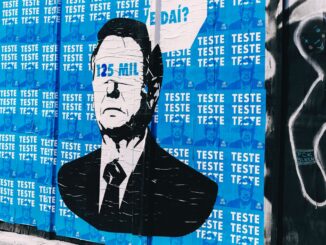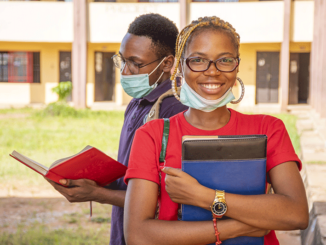
Heart&Soul recently had the opportunity to talk with Dr. Gary Gibbons Director at NIH about vaccines and what our community should know.
Which of the various vaccines is most effective for African Americans
Dr. Gary Gibbons: There were many efforts at play to ensure that all communities were included in the research testing the vaccines. Communities of color stepped up and joined tens of thousands of participants in testing the vaccine and this ensures that these vaccines work for everyone — not just for a slice of the population.
The vaccines approved by Food and Drug Administration (FDA) for emergency use authorization have been found to be 95% effective in prevention you from getting sick COVID-19 and more importantly from getting severe cases of COVID-19 which lead to hospitalizations and death. That effectiveness applies to those represented in the studies including, African Americans, older people, and people who already have other health conditions.
If someone has had an allergic reaction to the flu or pneumonia vaccine in the past, would they get the same reaction to the corona virus vaccine? If an allergic reaction happens, should they take this vaccine?
Dr. Gary Gibbons: The CDC provides recommendations on what to do if someone experiences an allergic reaction after getting a COVID-19 vaccination. I encourage your readers to visit the CDC website for more information.
Why should our audience believe that this vaccine isn’t just another way of experimenting on the African American community? Given the history of the government experimenting on African Americans in the Tuskegee experiment and using our immune systems for experimentation?
Dr. Gary Gibbons: The fears of people of color about research are understandable. The National Institutes of Health is working with national and local leaders to address these concerns, build trust, bust the myths, ensure inclusivity, and educate about the research safeguards in place.
The research wrongs of the past have led to rather rigorous safeguards for research that prevent misconduct of the past from ever happening again. The safeguards ensure historic wrongs are not repeated, and that safe and ethical standards are always required. The FDA, research review boards, and expert panels at the NIH — indeed, each institution and company conducting medical research—rigorously review every phase of a clinical trial, from before it begins until after it ends. These review boards include not just scientists, doctors, and experts, but also community advocates who keep a watchful eye on the process.
Lastly, there are African American scientists, like me, in leadership positions now. Many of our careers have been committed to addressing health issues in general but we have particular interests in the safeguarding the communities that we represent.

Director, National Heart, Lung, and Blood Institute
National Institutes of Health
photo: courtesy National Institutes of Health
What would happen if a large portion of African Americans didn’t take the vaccine, while the majority of the population takes it? Would we contract the disease faster, or would/could we reinfect the general population?
Dr. Gary Gibbons: SARS-CoV-2 – the virus that causes COVID-19 — is a highly transmittable virus that doesn’t discriminate by race or ethnicity — but rather by exposure. The virus effects everyone and is spread by people who have symptoms (such as coughing and breathing challenges) and those that do not and who feel fine.
To eradicate this virus, a majority of the public will need to take the vaccine. If just 50% of the public gets vaccinated, we will start to see an impact, but we will not achieve herd immunity – where enough people have become immune to the virus causing its transmission to significantly slow down – until approximately 80% of the population is vaccinated. Until then the community spread among everyone, including African Americans, will continue.
If people of color don’t take the vaccine, but follow all the safety protocols, is that enough to protect them, or would they live in continual fear of contracting the disease?
Dr. Gary Gibbons: While it is critically important to always remember the three Ws — wash your hands, watch your distance, and wear a face mask — the best way to protect yourself and your loved ones from contracting the virus is by getting vaccinated. In addition, we are working diligently to find new ways of treating COVID-19. But, these studies will also need to include sufficient numbers of African Americans to ensure that the new treatments work for us. Still, the best protection is vaccination.
For those vaccines that happen in two parts what happens if you only take the first shot?
Dr. Gary Gibbons: If a person only takes the first of two recommended doses of the vaccine, that person will have some immunity, but it will not be as long-lasting or as strong as had they completed the full dose. Just as with any medication, it is important to follow the instructions as prescribed so you get the full benefit – including the vaccine.
Thank you Dr. Gibbons for taking the time to talk with us and help our audience understand the importance of vaccines.





